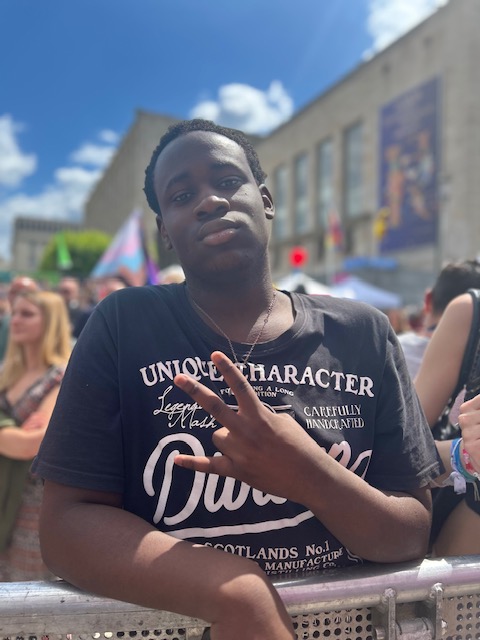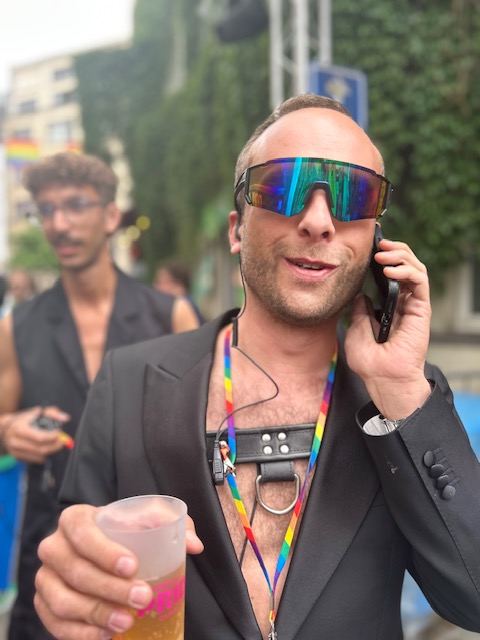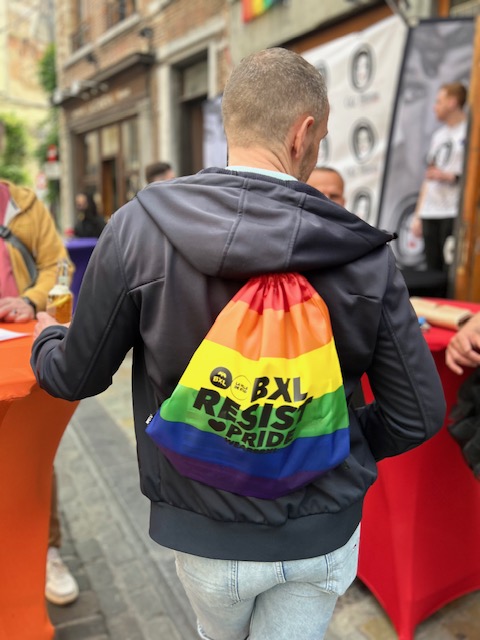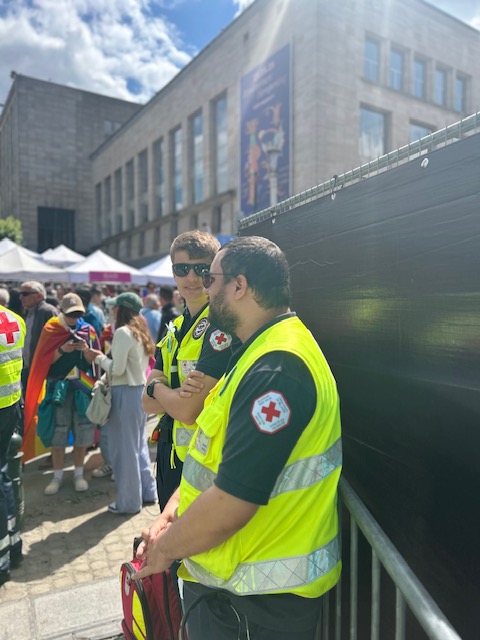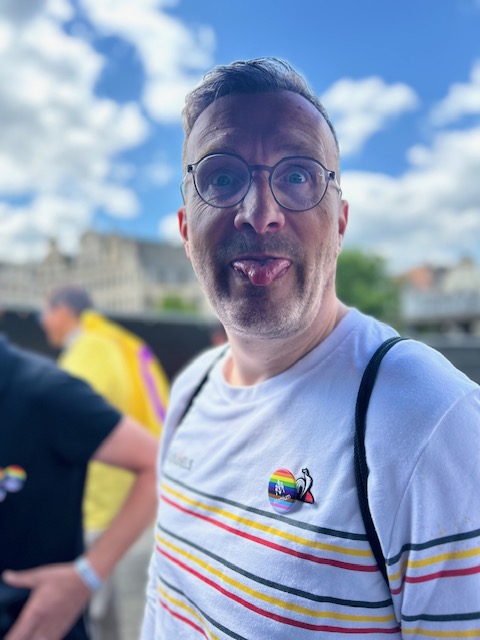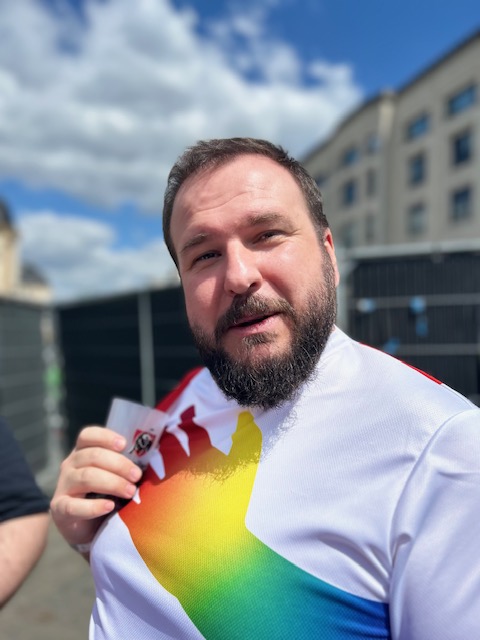Brussels Pride 2025 once again established itself as a key event in the city’s cultural and activist calendar. This year’s edition drew an impressive crowd, reflecting the vibrancy and diversity of the LGBTQIA+ community and its allies.
Massive Participation
According to figures provided by the police, 70,000 people marched in the official Pride parade through the city center, creating a festive and activist atmosphere in the heart of Brussels. Beyond the parade, the entire day’s events-including concerts, stands, and activities-attracted a total of 220,000 participants. This record turnout confirms Brussels Pride’s place among the capital’s major public events.
The Last Attack on Fundamental Rights
Before the traditional colorful and festive parade set off, the stage was given to LGBTQIA+ activists from countries where their community’s rights are under severe pressure.
“I come from Hungary, a country that rose up in 1956 against Soviet domination,” explained an activist from Budapest, where Pride was banned this year. “A country that was the first to open the Iron Curtain in 1989, a country where tolerance toward sexual minorities increased this year, a country that loves freedom because it has suffered to be free, and a country where more and more people are ashamed of their government.”
“The ban on Pride is just the latest attack on the fundamental rights of Hungarian citizens,” he continued. “But the government cannot ban Budapest Pride, because love and freedom cannot be banned. On June 28, Budapest Pride will take place, and I invite everyone to join and make it the biggest, most colorful, most international Pride ever seen.”
Budapest Pride President Viktória Radványi addressed the European Commission directly: “Since Pride was banned two months ago, we have seen no action from the European Commission. If the Commission does not suspend the law banning LGBTQIA+ events, other Eastern European countries will follow with similar bans. If the Commission does not act, it will be complicit in restricting the fundamental rights of European citizens.”
Echoing these concerns, a Romanian activist voiced his worries on the eve of an election in his country that could see the far right come to power.
“Pride is our answer to the rise of extremism around the world. On Sunday, we will elect a new president in Romania, and we must choose between the European Union and the far right. This year, we celebrate the 20th anniversary of Bucharest Pride. Twenty years ago, the EU helped us decriminalize homosexuality in Romania; now, we need Europe’s help again.”
Chille Deman, one of the founders of Brussels Pride, also took the stage: “Twenty-nine years ago, we were here with 3,000 people; now, we are over 100,000. But the fight is not over. We must continue to fight to maintain and protect our rights, and to change mentalities. We must also show international solidarity: the images of our Pride today are a message of support for people in countries where Pride is banned,” he emphasized.
Limited International Reach Due to Lack of Government
Despite this popular success, it is regrettable that the ongoing absence of a Brussels regional government has hindered the international promotion of this year’s Pride. Without an executive in place, no large-scale international campaign could be organized, depriving Brussels Pride of the visibility and reach that could have attracted even more international visitors and strengthened Brussels’ message of openness.
Brussels Pride 2025 will be remembered as an edition marked by exceptional mobilization and an undiminished spirit of celebration and activism. However, it is to be hoped that in the coming years, renewed political support will allow this event to shine even more brightly on the international stage, fully realizing its potential and ambitions-especially at a time when solidarity and the defense of fundamental rights are more necessary than ever.
You may also like
-

Queer Voices, One City: Meet the Choirs of Various Voices Brussels 2026
This June, Brussels turns into a queer soundscape: 120 LGBTQI+ choirs from 18 countries are
-

Lou Queernaval in Nice: When Queer Celebration Takes Center Stage
On February 27, Place Masséna in Nice became a queer epicenter. For its 11th edition,
-

A New Safe Harbor in Brussels: RainbowHouse Launches LGBTQIA+ Info Point
RainbowHouse Brussels is opening a brand-new door for our communities – and it’s one that
-

Niall Horan, Soft-Spoken Pop Star – And Loud LGBTQ+ Ally
From Pride tweets to rainbow flags in the crowd, Irish singer Niall Horan has quietly
-

Angèle x Justice’s “What You Want”: A Queer Night Out We’ve All Dreamed Of
Projected onto the façade of La Monnaie in Brussels and shot at night in Marseille





